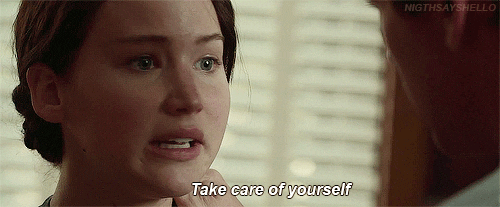It’s pretty hard to deny the kind of life most of us live. The fast pace and constant pressure to succeed takes a pretty heavy toll on our minds. The number of people who suffer from anxiety related issues has skyrocketed. Suffering from anxiety means that you have a fight or flight system that is over-active. It also means that you can’t control your fears and also your physical sensations. It’s important to realise that it’s not something that can’t be controlled. Here are a few techniques to help get your anxiety under control.
1. Jogging And Exercise

As much as we’d like to avoid it, there is no getting around it. Exercise is proven to be an essential and crucial component that contributes towards good mental health. Jogging in particular (but not excluded to) helps the release of brain chemicals that provide relaxation and improve mood. It also decreases the quantity of the stress hormone in the body and overall hormone balance. If your goal is to control your anxiety, you simply have to start exercising.
2. A Thought Journal

Sure anxiety has a lot of different physical symptoms, but it’s the mental ones that are the hardest to control. While the aches, pains and nausea can be ignored, the thoughts or worries in your head are too loud and irrational. Your mind has a way or remembering and focusing on the things you try your hardest to forget. The brain isn’t too game to push something out of your conscious, so you actually tend to focus on that more instead of getting rid of them. So, if you want the thought gone, but your brain won’t allow it, the only way to get it out is to write it down. It isn’t just limited to something that causes you anxiety, it can be a simple thought as well. The best time to do this is usually in the night when your brain is super active. Your brain will be at ease once it knows that your thoughts are in a permanent place.
3. Disrupt the Negatives With Positives

Anxiety has a way of bringing all the negatives into your head. It’s pretty hard to shake off those feelings and something that can help you combat the negativity is positivity. So, how do you do that? Well, it’s important to remember and keep a note of all the good things in the day or in life. Write them down if you need to. It doesn’t matter how small or big the thought is, as long as it’s positive. Call it your happy page! Every time you feel like you’re going into a negative space, read the page and pull your mind to a lighter space.
4. Distractions

One of the most important parts of controlling anxiety is being able to distract your mind. In the long run, studies show that people cope with stress better if they remain mentally busy and less able to focus on their own thoughts. Going out with friends, exercise, work, etc are all good ways to keep yourself distracted. If you don’t have enough time in the day to do that or say you’re busy, another great way to distract your mind is with light-hearted podcasts. Wondering why not music? While music is amazing and can inspire emotion, most people’s choice in music isn’t something they need to relax. Sad songs make you feel sad. Happy songs may not have the best beats/tones. Angry songs increase anxiety. So music isn’t ideal for anxiety. In addition, the mind has an easier time tuning out music. Podcasts, on the other hand, are a valuable alternative. Podcasts are audio files that can be an hour long or more where people tend to simply be talking.
5. Retrain Your Breathing

Breathing is something that plays a significant role in creating some of the worst anxiety symptoms, like chest pains and lightheadedness. All of these are the result of something known as hyperventilation. Anxiety is a tricky thing! It has the ability to train your body to breathe inefficiently which then causes you to hyperventilate. However, you can retrain your body to breathe better by taking slow, controlled breaths in a comfortable position every day. Breathe in through your nose for five seconds, hold for two seconds and then breathe out like you’re whistling for at least seven seconds. This strategy is very useful for when you start showing symptoms of hyperventilation or even if you need to calm your self down. At first it might seem like a struggle, but eventually, you can make this a habit.

These are just some ways to help you get control over your anxiety. It’s important to remember that you also need to get a hold of your thoughts and emotions. Don’t let your anxiety be something that defines you. Find what works for you and help others as well.
Don’t forget to follow us at @missmalinilifestyle to never miss a beat!

